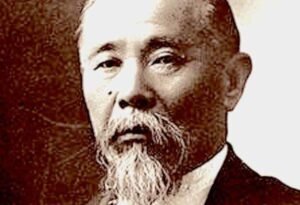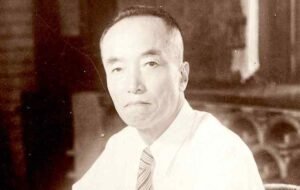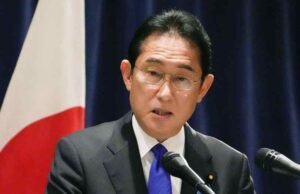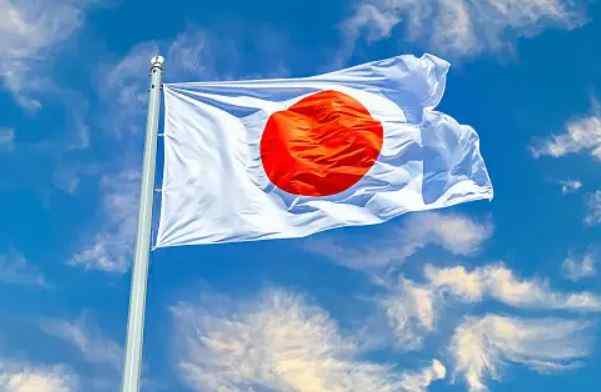Here’s a comprehensive list of all the prime ministers of Japan from 1885 to the present, including their respective terms, and party affiliations:
No. | Name | Term Start | Term End | Party |
|---|---|---|---|---|
1 | Itō Hirobumi | 22 Dec 1885 | 30 Apr 1888 | Independent (Meiji oligarchy) |
2 | Kuroda Kiyotaka | 30 Apr 1888 | 25 Oct 1889 | Military (Army) |
3 | Sanjō Sanetomi (caretaker) | 25 Oct 1889 | 24 Dec 1889 | Independent |
4 | Yamagata Aritomo | 24 Dec 1889 | 6 May 1891 | Military (Army) |
5 | Matsukata Masayoshi | 6 May 1891 | 8 Aug 1892 | Independent (Meiji oligarchy) |
6 | Itō Hirobumi | 8 Aug 1892 | 31 Aug 1896 | Independent (Meiji oligarchy) |
7 | Matsukata Masayoshi | 18 Sep 1896 | 12 Jan 1898 | Independent (Meiji oligarchy) |
8 | Itō Hirobumi | 12 Jan 1898 | 30 Jun 1898 | Independent (Meiji oligarchy) |
9 | Ōkuma Shigenobu | 30 Jun 1898 | 8 Nov 1898 | Kenseitō |
10 | Yamagata Aritomo | 8 Nov 1898 | 19 Oct 1900 | Military (Army) |
11 | Itō Hirobumi | 19 Oct 1900 | 10 May 1901 | Rikken Seiyūkai |
12 | Katsura Tarō | 2 Jun 1901 | 7 Jan 1906 | Military (Army) |
13 | Saionji Kinmochi | 7 Jan 1906 | 14 Jul 1908 | Rikken Seiyūkai |
14 | Katsura Tarō | 14 Jul 1908 | 30 Aug 1911 | Military (Army) |
15 | Saionji Kinmochi | 30 Aug 1911 | 21 Dec 1912 | Rikken Seiyūkai |
16 | Katsura Tarō | 21 Dec 1912 | 20 Feb 1913 | Independent |
17 | Yamamoto Gonnohyōe | 20 Feb 1913 | 16 Apr 1914 | Military (Navy) |
18 | Ōkuma Shigenobu | 16 Apr 1914 | 9 Oct 1916 | Rikken Dōshikai |
19 | Terauchi Masatake | 9 Oct 1916 | 29 Sep 1918 | Military (Army) |
20 | Hara Takashi | 29 Sep 1918 | 4 Nov 1921 | Rikken Seiyūkai |
21 | Takahashi Korekiyo | 13 Nov 1921 | 12 Jun 1922 | Rikken Seiyūkai |
22 | Katō Tomosaburō | 12 Jun 1922 | 24 Aug 1923 | Military (Navy) |
23 | Yamamoto Gonnohyōe | 2 Sep 1923 | 7 Jan 1924 | Military (Navy) |
24 | Kiyoura Keigo | 7 Jan 1924 | 11 Jun 1924 | Independent |
25 | Katō Takaaki | 11 Jun 1924 | 28 Jan 1926 | Kenseikai |
26 | Wakatsuki Reijirō | 30 Jan 1926 | 20 Apr 1927 | Kenseikai |
27 | Tanaka Giichi | 20 Apr 1927 | 2 Jul 1929 | Rikken Seiyūkai |
28 | Hamaguchi Osachi | 2 Jul 1929 | 14 Apr 1931 | Rikken Minseitō |
29 | Wakatsuki Reijirō | 14 Apr 1931 | 13 Dec 1931 | Rikken Minseitō |
30 | Inukai Tsuyoshi | 13 Dec 1931 | 15 May 1932 | Rikken Seiyūkai |
31 | Saitō Makoto | 26 May 1932 | 8 Jul 1934 | Military (Navy) |
32 | Okada Keisuke | 8 Jul 1934 | 9 Mar 1936 | Military (Navy) |
33 | Hirota Kōki | 9 Mar 1936 | 2 Feb 1937 | Independent |
34 | Hayashi Senjūrō | 2 Feb 1937 | 4 Jun 1937 | Military (Army) |
35 | Konoe Fumimaro | 4 Jun 1937 | 5 Jan 1939 | Independent |
36 | Hiranuma Kiichirō | 5 Jan 1939 | 30 Aug 1939 | Independent |
37 | Abe Nobuyuki | 30 Aug 1939 | 16 Jan 1940 | Military (Army) |
38 | Yonai Mitsumasa | 16 Jan 1940 | 22 Jul 1940 | Military (Navy) |
39 | Konoe Fumimaro | 22 Jul 1940 | 18 Oct 1941 | Independent |
40 | Tōjō Hideki | 18 Oct 1941 | 22 Jul 1944 | Taisei Yokusankai |
41 | Koiso Kuniaki | 22 Jul 1944 | 7 Apr 1945 | Taisei Yokusankai |
42 | Suzuki Kantarō | 7 Apr 1945 | 17 Aug 1945 | Taisei Yokusankai |
43 | Higashikuni Naruhiko | 17 Aug 1945 | 9 Oct 1945 | Imperial Family |
44 | Shidehara Kijūrō | 9 Oct 1945 | 22 May 1946 | Independent |
45 | Yoshida Shigeru | 22 May 1946 | 24 May 1947 | Liberal |
46 | Katayama Tetsu | 24 May 1947 | 10 Mar 1948 | Socialist |
47 | Ashida Hitoshi | 10 Mar 1948 | 15 Oct 1948 | Democratic |
48 | Yoshida Shigeru | 15 Oct 1948 | 10 Dec 1954 | Democratic Liberal |
49 | Hatoyama Ichirō | 10 Dec 1954 | 23 Dec 1956 | Japan Democratic |
50 | Ishibashi Tanzan | 23 Dec 1956 | 25 Feb 1957 | Liberal Democratic |
51 | Kishi Nobusuke | 25 Feb 1957 | 19 Jul 1960 | Liberal Democratic |
52 | Ikeda Hayato | 19 Jul 1960 | 9 Nov 1964 | Liberal Democratic |
53 | Satō Eisaku | 9 Nov 1964 | 7 Jul 1972 | Liberal Democratic |
54 | Tanaka Kakuei | 7 Jul 1972 | 9 Dec 1974 | Liberal Democratic |
55 | Miki Takeo | 9 Dec 1974 | 24 Dec 1976 | Liberal Democratic |
56 | Fukuda Takeo | 24 Dec 1976 | 7 Dec 1978 | Liberal Democratic |
57 | Ōhira Masayoshi | 7 Dec 1978 | 12 Jun 1980 | Liberal Democratic |
58 | Suzuki Zenkō | 17 Jul 1980 | 27 Nov 1982 | Liberal Democratic |
59 | Nakasone Yasuhiro | 27 Nov 1982 | 6 Nov 1987 | Liberal Democratic |
60 | Takeshita Noboru | 6 Nov 1987 | 3 Jun 1989 | Liberal Democratic |
61 | Uno Sōsuke | 3 Jun 1989 | 10 Aug 1989 | Liberal Democratic |
62 | Kaifu Toshiki | 10 Aug 1989 | 5 Nov 1991 | Liberal Democratic |
63 | Miyazawa Kiichi | 5 Nov 1991 | 9 Aug 1993 | Liberal Democratic |
64 | Hosokawa Morihiro | 9 Aug 1993 | 28 Apr 1994 | New Frontier |
65 | Hata Tsutomu | 28 Apr 1994 | 30 Jun 1994 | Renewal |
66 | Murayama Tomiichi | 30 Jun 1994 | 11 Jan 1996 | Socialist |
67 | Hashimoto Ryūtarō | 11 Jan 1996 | 30 Jul 1998 | Liberal Democratic |
68 | Obuchi Keizō | 30 Jul 1998 | 5 Apr 2000 | Liberal Democratic |
69 | Mori Yoshirō | 5 Apr 2000 | 26 Apr 2001 | Liberal Democratic |
70 | Koizumi Junichirō | 26 Apr 2001 | 26 Sep 2006 | Liberal Democratic |
71 | Abe Shinzō | 26 Sep 2006 | 26 Sep 2007 | Liberal Democratic |
72 | Fukuda Yasuo | 26 Sep 2007 | 24 Sep 2008 | Liberal Democratic |
73 | Asō Tarō | 24 Sep 2008 | 16 Sep 2009 | Liberal Democratic |
74 | Hatoyama Yukio | 16 Sep 2009 | 8 Jun 2010 | Democratic |
75 | Kan Naoto | 8 Jun 2010 | 2 Sep 2011 | Democratic |
76 | Noda Yoshihiko | 2 Sep 2011 | 26 Dec 2012 | Democratic |
77 | Abe Shinzō | 26 Dec 2012 | 16 Sep 2020 | Liberal Democratic |
78 | Suga Yoshihide | 16 Sep 2020 | 4 Oct 2021 | Liberal Democratic |
79 | Kishida Fumio | 4 Oct 2021 | Present | Liberal Democratic |
READ ALSO: List Of Presidents Of The Government Of Morocco 1955-Present
How Many Prime Ministers Has Japan Had?

Japan has had a total of 79 prime ministers from 1885 to now. The first prime minister was Itō Hirobumi. He started on December 22, 1885, and served until April 30, 1888.
Since then, many leaders have come and gone, with some serving multiple terms. The role of the prime minister in Japan is very important.
They are the head of the government and are responsible for running the country. Over the years, the position has been held by members of different political parties.
The Liberal Democratic Party has been the most dominant in recent years. Some prime ministers have served for a long time. For example, Shigeru Yoshida served for over six years.
Shinzo Abe holds the record for the longest-serving prime minister in Japanese history. He served for over nine years across two non-consecutive terms.
The prime minister’s assignment includes making important decisions on domestic and foreign policy, leading the Cabinet, and representing Japan in international affairs.
READ ALSO: Complete List Of Presidents Of South Korea
Who Was The Prime Minister Of Japan After WW2?

After World War II, the first prime minister of Japan was Naruhiko Higashikuni. He was in office for a short time from August to October 1945.
After him, Kijūrō Shidehara became the prime minister and led the country from October 1945 to May 1946. One of the most important prime ministers after the war was Shigeru Yoshida. He served several terms between 1946 and 1954.
Yoshida was key in rebuilding Japan’s economy and its relations with other countries. He wanted a strong partnership with the United States and focused on economic recovery by boosting exports.
Other notable prime ministers include Ichirō Hatoyama, who led from 1954 to 1956, and Nobusuke Kishi, who was in office from 1957 to 1960.
Hayato Ikeda, who served from 1960 to 1964, introduced policies that helped Japan’s economy grow rapidly. This period is known as the “Japanese economic miracle.”
Eisaku Satō, prime minister from 1964 to 1972, helped Japan recover and become an economic superpower. He also improved relations with China in 1972.
Kakuei Tanaka, who led from 1972 to 1974, continued Satō’s economic policies but had to resign because of a corruption scandal. In the 1980s, Zenkō Suzuki and Yasuhiro Nakasone were prime ministers.
Nakasone, who served from 1982 to 1987, strengthened the US-Japan alliance and promoted a more active Japanese foreign policy.
READ ALSO: List Of All Presidents Of Algeria (1963-Present)
Who Is The Current Prime Minister Of Japan?

Fumio Kishida is the current Prime Minister of Japan. He has held this position since October 4, 2021, and is also the President of the Liberal Democratic Party (LDP).
Kishida was born on July 29, 1957, into a political family, which likely influenced his career path. His political career began when he was elected to the House of Representatives in 1993 as a member of the LDP.
Before becoming Prime Minister, he served in different roles, including Minister for Foreign Affairs from 2012 to 2017, where he became the longest-serving foreign minister in Japan’s history.
He also briefly acted as Minister of Defense in 2017 and chaired the LDP Policy Research Council from 2017 to 2020. His early life included spending part of his childhood in the United States, where he attended elementary school in New York City.
After starting his career in finance, he moved Into politics. Kishida was considered a potential future Prime Minister for many years and ran for the LDP leadership in 2020 but lost.
He ran again in 2021 and won against Taro Kono in a second-round run-off. As Prime Minister, Kishida has focused on creating a “new model of capitalism” aimed at expanding the middle class through redistributive policies.
He led the LDP to victory in the 2021 general election and the 2022 House of Councillors election, although with a slightly reduced majority.
His tenure has included significant events such as overseeing the dissolution of the Unification Church in Japan and responding to international issues like the Russian invasion of Ukraine, where Japan was one of the first Asian countries to impose sanctions.
Kishida’s leadership has also involved reshuffling his cabinet to address low approval ratings and managing Japan’s military budget, which he plans to increase significantly by 2027.

